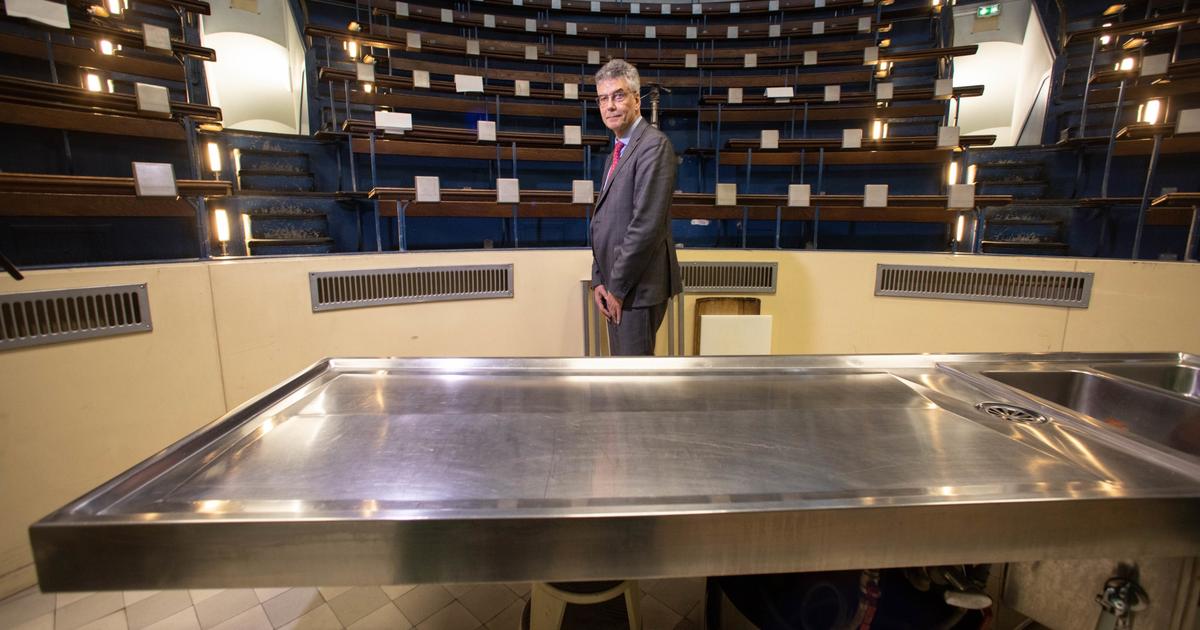A life without headache, the man last led 35 years ago. Since then, the complaints accompany him again and again rob him of his quality of life, without knowing where they come from.
Initially, the attacks only came from time to time, then they became more frequent and painful, until they hardly paused with three to five attacks per week. At this time, the 64-year-old man seeks advice in the neurological practice of the San Fernando Teaching Hospital in Trinidad and Tobago.
He tells the doctors how the pain typically attacks him in the morning or in the evening: he starts behind the ear and wanders towards the forehead and temples, always hurts the right side a little more than the left. Without medication, the symptoms remain one to three days, but even with tablets, there is little relief.
Only a daily combination of acetaminophen, aspirin and caffeine could help him for a while. The man then swallowed a combination of codeine, an opiate, and acetaminophen, but the headaches persisted, the doctors report to Antonio Jose Reyes in the British Medical Journal.
Diagnosis: Chronic migraine
When the man tells the neurologist about his symptoms, he is feverish and at first sight seems healthy. He does not suffer from a disease of the nerves, he does not smoke, does not drink, does not use illegal drugs. Although he developed hypertension several years ago, he keeps it well in check with medication.
Based on his descriptions, the doctors diagnose a chronic migraine without aura, he meets all the criteria, for example, has been suffering from the attacks for more than three months and complains of pulsating pain, which increase when he walks around.
The diagnosis is not new, from the beginning doctors assumed a migraine. At that time they prescribed him triptans, typical migraine medicines. They triggered extreme dizziness with him, the man had to sell them again. The cause of the migraine, however, remained enigmatic throughout the years.
The neurologists start to check the man completely. They send their blood to the lab, analyze their sugar levels, look for signs of rheumatic disease, do chest X-rays, do a CT scan of their brains, and see the blood vessels in their heads on MRI images. The result is always the same: everything in the normal range.
Root canal treatments, fillings, drawn teeth
One thing, however, has been tormenting the patient for years, besides his headache, he reports: he has very bad teeth. Just recently, the 64-year-old had to undergo root canal treatment on several teeth, while others filled the doctor with holes.
When asked, the man remembers that the headaches in the past were often associated with tooth discomfort. When the mouth was causing more problems, the head also ached more often and harder. At one point, the headache even disappeared for some time when he had completed a dental procedure.
MORE ON THE SUBJECT
The 64-year-old never got the idea that his headache could have something to do with his teeth. Neither of his doctors has previously suspected such a connection. For the neurologist, however, it seems obvious, even if the remaining teeth appear healthy at first glance, do not respond to knocking and also on the gum is nothing to be discovered.
The neurologists ask the oral surgeon of the 64-year-old for advice, he should look in the patient's mouth for hidden disease - he will actually find. Radiographs show two sets of pus in the man's gums, both on the right, one above and one below the molar.
Trigeminal nerve: connection to the teeth
The oral surgeon removes the inflamed tissue. In addition, the doctors prescribed the man antibiotics for ten days to combat the pathogens that triggered inflammation in the gums. For the 64-year-old, it's the beginning of a new life. Less and less, he is overcome by a headache, and finally disappears completely. After 35 years, his quality of life has improved again, says the man at a follow-up 24 months later.
Headache and toothache can be mediated by the same nerve, the trigeminal nerve. It is a well-known phenomenon that migraine imitates toothache on this path, the doctors write. But it is rarer that toothache can be felt as a headache.
Nonetheless, the physicians call on doctors to think about oral health in the face of inexplicable headache. The disease must not necessarily be noticeable, write the doctors. Especially in people with an intact immune system could, like the man, inflammation in the depths of the gums form that do not directly cause problems.


/cloudfront-eu-central-1.images.arcpublishing.com/prisa/EH2E3EU7EVH5RNBQSZESTWOGZE.jpg)









/cloudfront-eu-central-1.images.arcpublishing.com/prisa/S7ERVSCT4FUVX6R7TUVBDNTH5Y.jpg)


